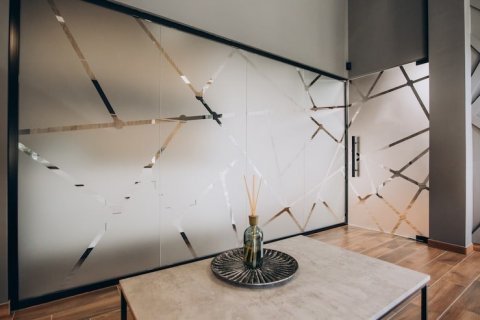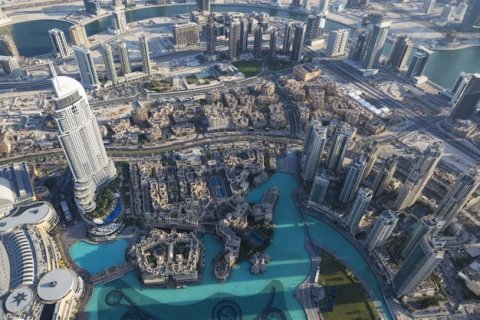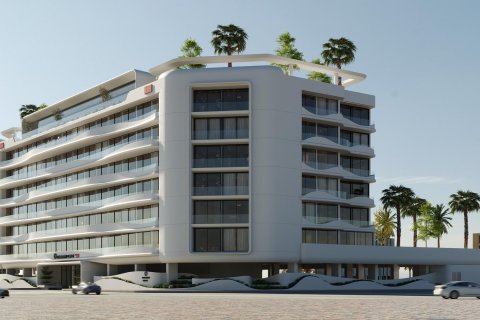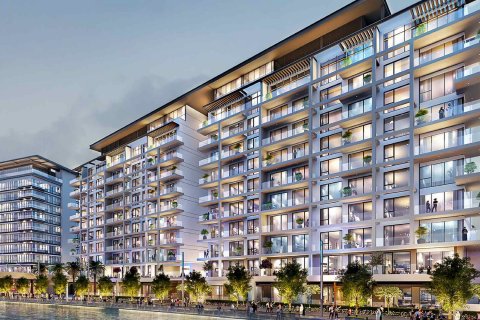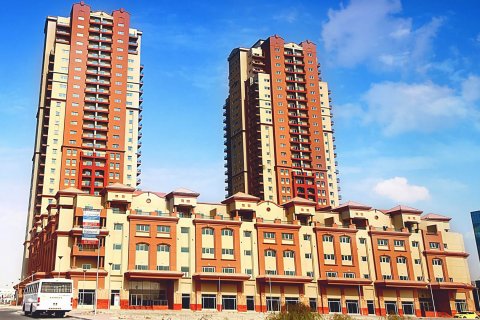
Experts are confident that the Dubai real estate market is not threatened by a sudden collapse or a slowdown. On the contrary, the market will develop for a long time.
Positive reasons include the emirate’s rapid population growth, low taxes, and low property prices, which are still far from London, Paris or Hong Kong.
Content:
Prices and taxes
There is no income tax in the UAE. Since June 1, 2023, the country has introduced a corporate tax, which will take effect from the next fiscal year and is 9%. This generally requires the payment of this low tax, though not always — it is levied on profits exceeding AED 375,000 ($102,000).
This tax situation attracts the influx of wealthy migrants. Moreover, moving to Dubai is inexpensive for them. A two-bedroom apartment in downtown Dubai is put up for sale for an average of AED 2.5 million ($680,000), and in less prestigious areas — for AED 1.5 million ($410,000). And this is after May 2023, when the number of real estate transactions increased by 76% compared to May 2022.
For comparison, a two-bedroom apartment in central London costs an average of $2.7 million. However, it gives way to Dubai apartments in area.
Dubai is waiting for guests
Dubai’s population surpassed 3.5 million in the spring of 2023 due to migration. Local authorities are happy about this and want to reach the level of 5.8 million people by 2040. Such population growth inevitably leads to the expansion of the city.
Of course, Dubai is implementing a lot of different development projects. However, most of them will not be put into operation for at least three years. Meanwhile, the population is growing. High demand makes migrants settle away from the city centre to pay less.
According to experts, the most sought-after areas among migrants are:
- Arabian Ranches 2 is a suburban freehold zone with villas, and townhouses;
- Jumeirah Village Circle is a freehold community with apartments, villas, and townhouses around green spaces and parks, close to Dubai’s free-trade zones;
- Town Square is a huge freehold zone along Al Qudra Street, where there should be 3,000 townhouses and 18,000 apartments by 2025;
- Mira is a residential area with almost 2,000 premium townhouses in the new district of Reem.
As Dubai continues to expand, there are fewer and fewer available land plots. Nevertheless, numerous brand-new neighbourhoods are underway in the emirate. A striking example is Palm Jebel Ali, an artificial archipelago abandoned many years ago. The relaunch of the project was announced by His Highness Sheikh Mohammed bin Rashid Al Maktoum, Vice President and Prime Minister of the UAE, Ruler of Dubai. Palm Jebel Ali should become a new elite district where about 35,000 families will live.
Affordable luxury
Dubai attracts many people with its beautiful beaches, gourmet restaurants, shopping malls, amusement parks, and much more. According to experts, the quality of life is one of the key factors forcing people to move to Dubai.
Meanwhile, living in Dubai is much cheaper than in the world’s major capitals. Experts say that Dubai’s luxury properties are seven times cheaper than Hong Kong’s premium real estate and five and a half times cheaper than London’s elite property. At the same time, you can get a high rental yield.
As a result, experts are not afraid of a decline in the Dubai real estate market in the near future. While the projects are being put into operation, brand-new districts are being implemented, and housing is becoming more diverse, prices are likely to stabilize and stop growing so fast, but not so soon.





































